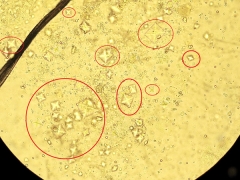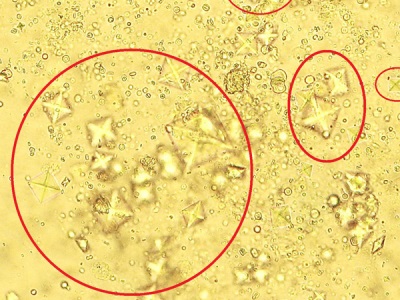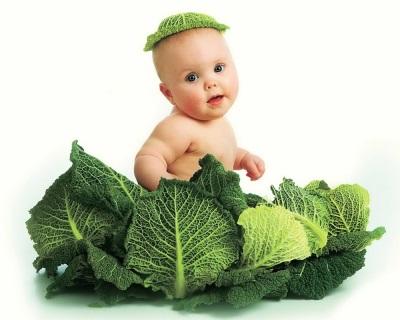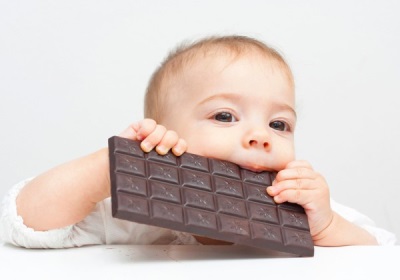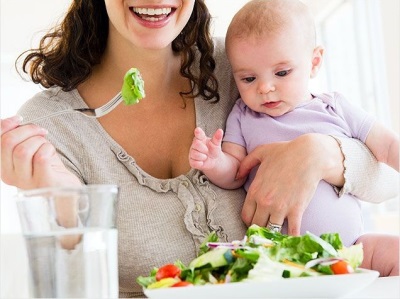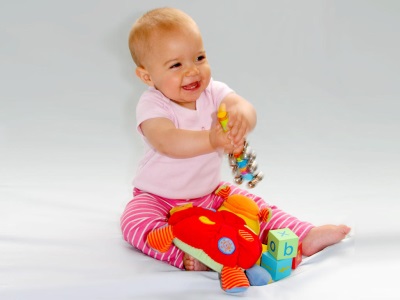Oxalates in the urine of a child
Changes in the analysis of the child can cause anxiety in parents, even if the baby donated blood or urine according to plan. And any deviations are especially alarming if the child feels unwell. Is it dangerous if a lot of oxalates are found in the urine of children and do you need to worry about such an indicator?
What is it?
The name "oxalate" is associated with the chemical structure of salts detected in human urine. So called salt, based on oxalic acid. These salts are found in the urine of children more often than other types of salts.
Norm
Such salts determine when to pass general urinalysis. In most cases, salts in the urine of the child should not be detected, but the mark in the analysis of "+" or "++" is also considered a variant of the norm.
But even the appearance of more oxalates does not always indicate a disease. Often it is caused by changes in nutrition, so when the diet is normalized, the indicator also returns to normal. If you retake the analysis after some time, it will have less salts.
The constant excretion of oxalates with urine should be wary — this condition is called oxaluria. It is most common in children from 6 to 14 years.
Have baby
In babies of infancy, the appearance of oxalates in the urine analysis is most often due to the nutrition of the nursing mother, but this may be a sign of impaired metabolic processes. In addition, an excess of such salts in the urine can signal congenital kidney disease.
Symptoms
In many cases, the excretion of oxalate with urine does not manifest itself in any way and salts are detected only in the analysis.
Also, with oxaluria, the following symptoms may occur:
- Frequent urination, but at the same time the daily volume of urine is reduced.
- Urine changes its appearance - it acquires a brighter color and its concentration increases. Urine may also have an unpleasant odor.
- Painful sensations may appear periodically in the lumbar region and in the abdomen.
- Blood pressure decreases, the overall tone decreases, the child gets tired faster.
The reasons
A large amount of oxalate can appear in the urine with:
- Eating foods with excess content of oxalic acid, such as beets, spinach, tea, gooseberries, rhubarb.
- Eating foods that are high in vitamin C.
- Congenital disorders of metabolic processes in which oxalic acid is involved.
- Inflammatory diseases of the kidneys or intestines.
- Diabetes mellitus.
- Kidney stones.
- Different chronic pathologies.
- Insufficient ingestion of group B vitamins to the child’s body.
- Dehydration, which can lead to prolonged exposure to hot conditions, and intestinal infections, and fever with excessive sweating, and insufficient drinking regime of the baby.
What to do with increased oxalate?
If the detection of a high concentration of oxalates was only once, nothing needs to be done, only after a time the analysis should be repeated. And only when an excess of salts in the urine is detected, it is necessary to take remedial measures again. In cases where parents are aware of the cause of this condition (dehydration, vitamin deficiencies, dietary disorders), the factors causing oxaluria should be affected.
Diet
It is important to enrich the child's diet with food, from which he will receive enough B vitamins and magnesium, as well as antioxidants.
In the baby’s menu you should add:
- Potatoes;
- Grapes;
- Banana;
- Cucumber;
- Pumpkin;
- White bread;
- Peas;
- Cabbage;
- Prunes and dried apricots;
- Pear;
- Apricot;
- Vegetable oil;
- Meat;
- Milk products;
- Cheese;
- Different cereals.
It is recommended to arrange a potato-cabbage day periodically, since these products accelerate the excretion of salts with urine. Meat and dairy dishes should be eaten before lunch.
It is recommended to exclude from the diet of the child:
- Spinach;
- Beetroot;
- Cocoa;
- Parsley;
- Leek;
- Sorrel;
- Rutabagus;
- Rhubarb;
- Citrus;
- Chocolate;
- Gooseberry and strawberry;
- Plums;
- Almond;
- Green beans;
- Vitamin complexes with ascorbic acid.
If an excess of oxalate is detected, the consumption of the following products should also be reduced:
- Sour apples;
- Tomatoes;
- Beef;
- Radish;
- Cod;
- Liver;
- Currant;
- Hen;
- Bow;
- Carrot;
- Cranberry.
If the child is breastfed, a nursing mother should consider all these limitations and recommendations. The diet should be followed at least 2-3 weeks.
Drinking mode
The amount of water that a child drinks should be increased. The minimum recommended volume is 1500 ml of water per day.
Due to the abundant drinking of salt, it will be better dissolved and removed in greater quantities from the body. A child can be given not only water, but also fresh juices, as well as fruit drinks. But with mineral water you need to be careful, as it may be salt, which will worsen the condition of the baby. Before the use of mineral water and any herbal decoctions should consult a pediatrician.
Do I need medication?
The doctor may prescribe a child vitamin complexes in which there is vitamin E, B-group vitamins, vitamin A, as well as drugs with magnesium and potassium. Severe cases of oxaluria are treated with special drugs, which are prescribed by the nephrologist. Also, medicines are prescribed for children whose condition has not improved after keeping the diet.
To protect the mucous membranes in the treatment regimen include membrane stabilizers and antioxidant drugs. If a bacterial infection is detected, antibacterial agents are indicated to the child.
Possible complications
Constant excess excretion of oxalate in the urine can provoke kidney pathologies such as pyelonephritis, urolithiasis and, in severe cases, renal failure. In the child's body, metabolic processes are disturbed, and as a result of salt crystallization, stones gradually appear in the urinary system. They are threatened with obstruction of the urinary tract, and if the stones are sharp, then there is also a risk of tissue rupture.
Prevention
To prevent excessive occurrence of oxalates caused by malnutrition, it is important to take care of a regular and balanced diet, which will have all the nutrients necessary for the health of the baby. It is also recommended to ensure the child a good sleep and moderate exercise, and the stress of the baby should be protected.
Tips for parents
Do not panic if a large amount of oxalate is detected in a baby’s urine analysis. The first thing to do is to make sure that you collected the urine for analysis and took the sample to the laboratory in time. If oxaluria is still confirmed, there is no need to worry either. Most often, after the diet prescribed by the doctor, everything is getting better.
You should not begin to treat the child yourself as soon as you see changes in the analyzes.You run the risk of delaying the baby’s recovery and provoking the occurrence of complications. Check with a doctor you trust.
